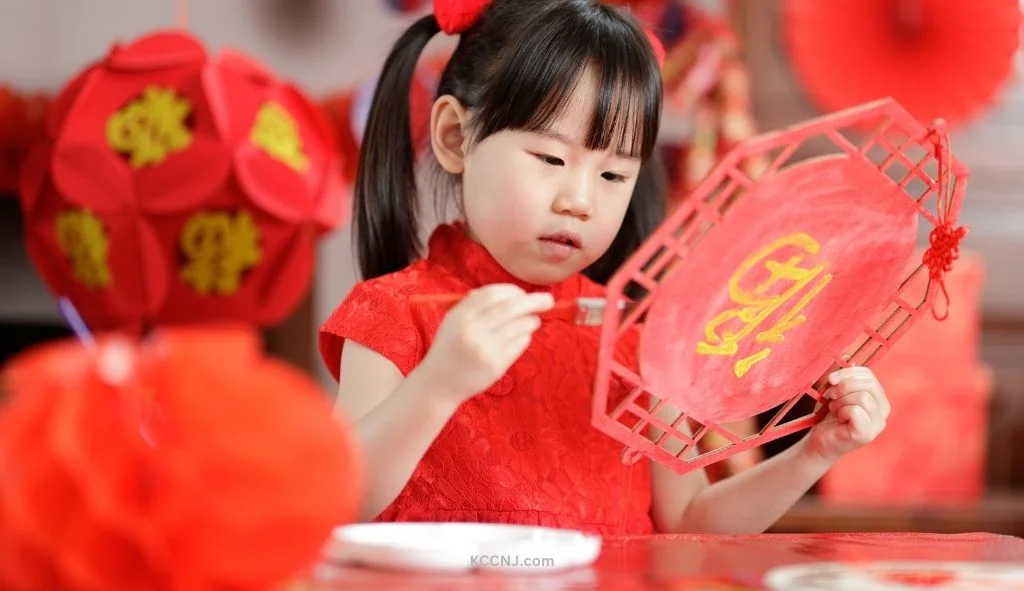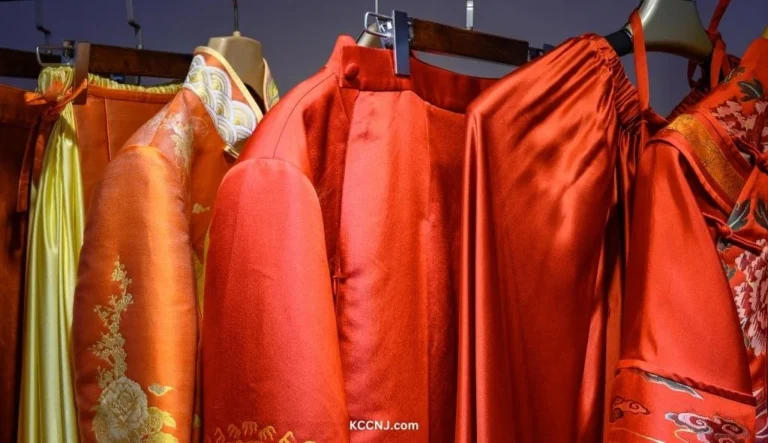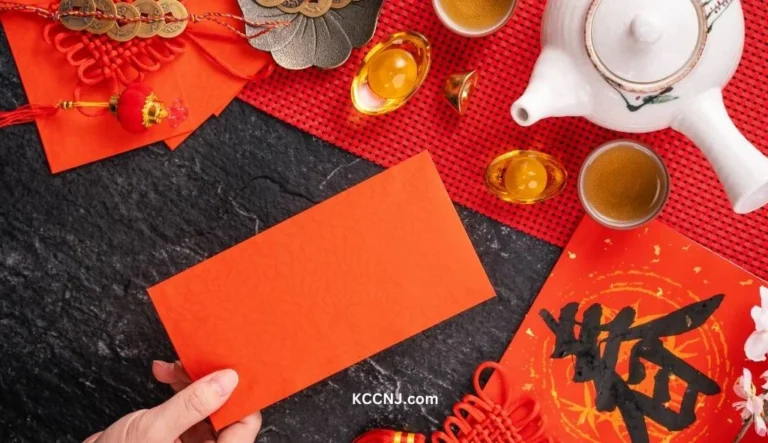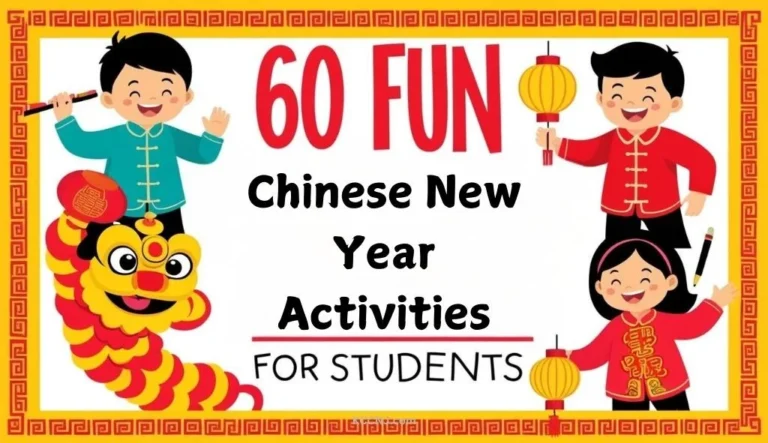50 Chinese New Year Facts Kids Need to Know in 2025
Chinese New Year, also known as Spring Festival, is a major celebration in Chinese culture. It marks the beginning of a new year on the traditional lunisolar Chinese calendar and is celebrated with various customs, traditions, and festivities.
Understanding Chinese New Year
Chinese New Year is the most important holiday in Chinese culture. It typically falls between January 21 and February 20 on the Gregorian calendar, as it is based on the lunar calendar. The festival lasts for 15 days and is filled with various traditions and customs.
Origin and History
The origins of Chinese New Year can be traced back to the Shang Dynasty (1600-1046 BCE). It began as a time to honor deities and ancestors. Over time, it evolved into a celebration of the arrival of spring and the beginning of a new year.
The Chinese Zodiac
The Chinese zodiac plays a significant role in Chinese New Year celebrations. Each year is associated with one of 12 animals in a repeating cycle. These animals are:
- Rat
- Ox
- Tiger
- Rabbit
- Dragon
- Snake
- Horse
- Goat
- Monkey
- Rooster
- Dog
- Pig
Traditions and Customs
Chinese New Year is rich with traditions and customs. Some of the most common include:
- Cleaning the house to sweep away bad luck
- Decorating with red lanterns and paper cuttings
- Giving red envelopes (hongbao) filled with money
- Setting off firecrackers
- Eating special foods like dumplings and fish
50 Chinese New Year Facts for Kids
- Chinese New Year is also called the Spring Festival.
- The holiday lasts for 15 days.
- In 2025, Chinese New Year falls on January 29.
- 2025 is the Year of the Snake in the Chinese zodiac.
- The color red is considered lucky and is used extensively in decorations.
- People clean their houses before the New Year to sweep away bad luck.
- It’s tradition to stay up late on New Year’s Eve to welcome the new year.
- Children receive red envelopes (hongbao) filled with money as gifts.
- Firecrackers are set off to scare away evil spirits.
- The Lantern Festival marks the end of the New Year celebrations.
- Dumplings are a traditional food eaten during the festival.
- The reunion dinner on New Year’s Eve is the most important meal of the year.
- It’s considered bad luck to wash your hair on New Year’s Day.
- The festival causes the largest annual human migration in the world.
- Lion and dragon dances are performed during celebrations.
- Tangerines and oranges are given as gifts because they symbolize wealth.
- It’s tradition to wear new clothes during the festival.
- The festival is celebrated by over 20% of the world’s population.
- In northern China, it’s traditional to eat dumplings at midnight on New Year’s Eve.
- The festival is a public holiday in many Asian countries.
- Each day of the 15-day festival has a special significance.
- It’s considered unlucky to use scissors or knives during the first days of the New Year.
- Fish is often eaten during the festival as it symbolizes abundance.
- The festival is celebrated in Chinatowns around the world.
- Married couples give red envelopes to unmarried juniors.
- The festival marks the beginning of spring in the traditional Chinese calendar.
- Nian gao, a sticky rice cake, is a popular New Year treat.
- Many businesses close for the first few days of the New Year.
- It’s tradition to pay off all debts before the New Year.
- The festival is a time for family reunions.
- Mandarin oranges are displayed in homes as they sound like “luck” in Chinese.
- The Chinese zodiac repeats every 12 years.
- Fireworks displays are a common sight during the festival.
- It’s considered unlucky to break things during the New Year.
- Many people travel long distances to be with family for the festival.
- The festival is sometimes called the Lunar New Year.
- In some regions, people eat long noodles to symbolize long life.
- Temple fairs are popular during the festival.
- The festival has been celebrated for over 3,000 years.
- Many families watch the CCTV New Year’s Gala on television.
- Some people avoid eating meat on the first day of the New Year.
- The festival is celebrated differently in various regions of China.
- Many people send New Year greetings via text message or social media.
- Some workplaces give bonuses before the New Year.
- It’s tradition to light incense to honor ancestors.
- Many people buy new year plants like plum blossoms or peonies.
- Some families hang spring couplets on their doors.
- The festival is a time when many Chinese return to their hometowns.
- Some people avoid lending or borrowing money during the festival.
- The festival ends with the Lantern Festival on the 15th day of the first lunar month.
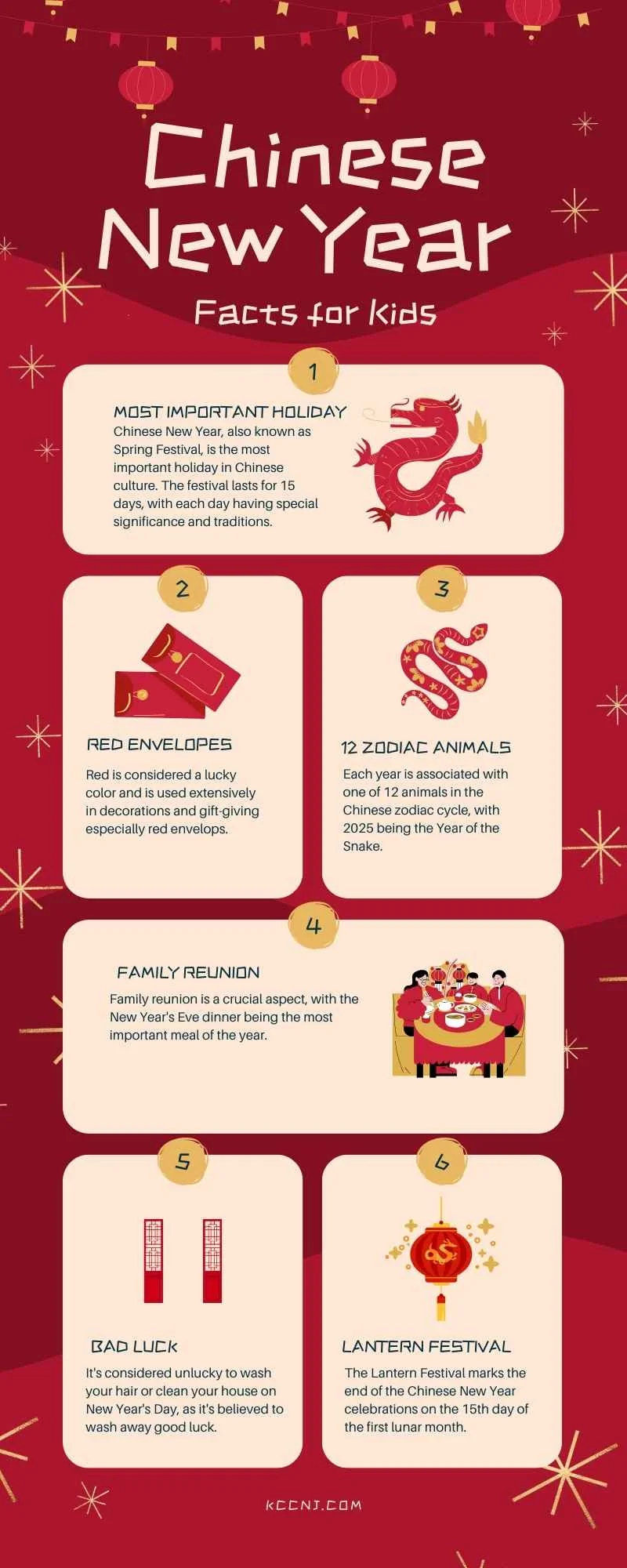
Celebrating Chinese New Year
Chinese New Year is a time of joy, renewal, and family togetherness. It’s celebrated not only in China but also in many other Asian countries and in Chinese communities around the world.
Family Reunions
One of the most important aspects of Chinese New Year is the family reunion. Many people travel long distances to be with their families during this time. The reunion dinner on New Year’s Eve is particularly significant, with families gathering to enjoy a feast and welcome the new year together.
Decorations and Symbols
Red is the predominant color during Chinese New Year, as it’s believed to bring good luck and ward off evil spirits. Homes and public spaces are decorated with red lanterns, paper cuttings, and couplets with auspicious messages. The Chinese character “fu” (福), meaning good fortune or happiness, is often displayed upside down, as the word for “upside down” (倒, dao) sounds similar to “arrive” (到, dao), thus signifying the arrival of good fortune.
Food and Feasting
Food plays a central role in Chinese New Year celebrations. Many dishes are eaten because their names or appearances are associated with good luck. For example:
- Dumplings (饺子, jiaozi) are eaten because they resemble ancient Chinese gold ingots and symbolize wealth.
- Fish (鱼, yu) is eaten because its name sounds like the word for surplus or abundance.
- Nian gao (年糕), a sticky rice cake, is eaten because its name sounds like “higher year,” symbolizing progress and advancement.
Customs and Superstitions
Many customs and superstitions are associated with Chinese New Year. Some of these include:
- Not cleaning the house on New Year’s Day, to avoid sweeping away good luck.
- Avoiding the use of scissors or knives, to prevent cutting off good fortune.
- Not washing hair on the first day of the New Year, as it’s believed to wash away good luck.
- Giving red envelopes (hongbao) filled with money to children and unmarried adults.

